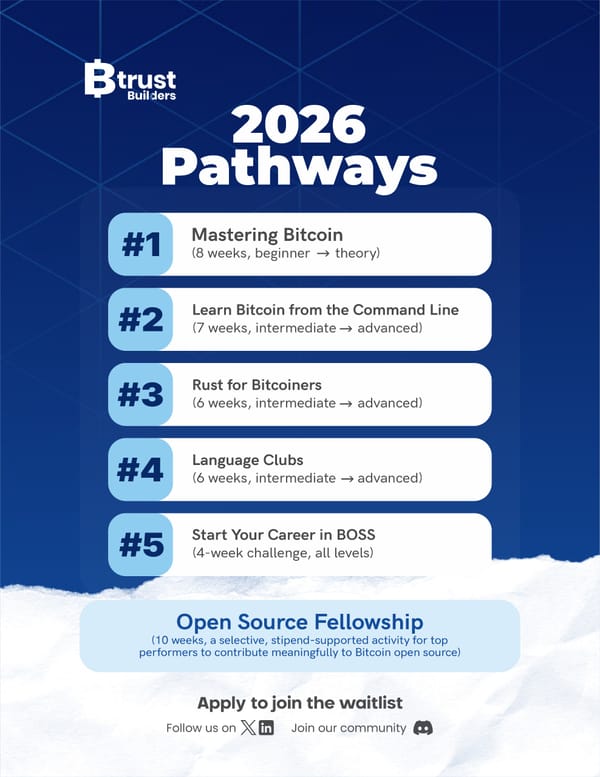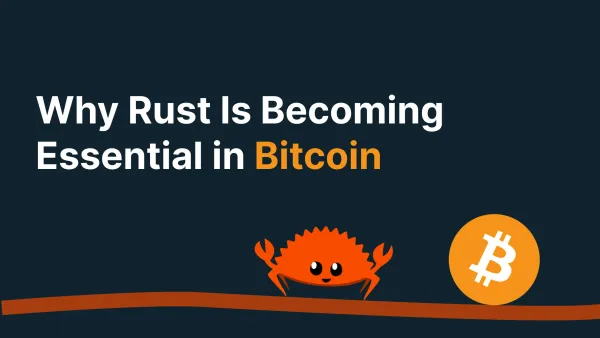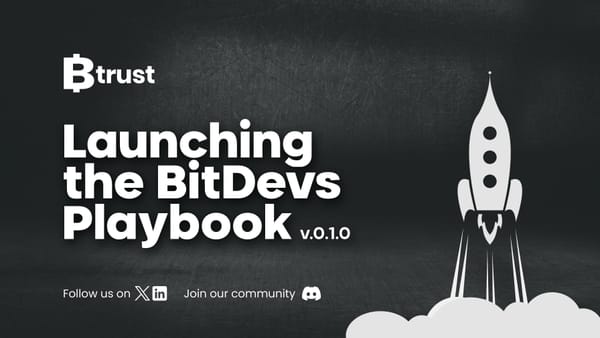E-Cash for Commerce: How Cashu Empowers Merchants via Bitcoin
E-Cash for Commerce: How Cashu empowers merchants via Bitcoin

Written by Tobechi Chukwuleta
In today’s world, payment systems have rapidly moved from physical cash to digital platforms. Everyone is prioritizing convenience. Users are now getting used to scanning QR codes, or tapping cards. While credit cards and mobile apps offer speed and convenience, they also expose merchants and customers to surveillance, and sometimes data breaches. This, in some cases, leads to an increased compliance burden on businesses. Every tap, scan, or transaction done leaves behind a trail—which is linked to personal data, spending habits, and even location (McKinsey; Bank for International Settlements).
So while digital payments have made commerce faster and more global, they’ve also taken away one important feature that physical cash always provided—anonymity.
The critical question now becomes: do we prioritize efficiency or privacy?
But what if you don’t have to trade one for the other? That is where Cashu—Ecash for Bitcoin—comes in.

Cashu
Cashu offers token-based Bitcoin payments to everyday commerce without having to trade off anonymity.
What is Ecash and Cashu?
To understand why and how Cashu helps today’s commerce, we first need to grasp what Ecash is, not just as a technical term but as a business tool.
Ecash or electronic cash is a digital form of money that works much like physical cash, but instead of using paper notes, we use tokens. Let’s compare them side by side:
- Anonymous: You walk into a store, you buy an item by handing over a $100 note to the seller. No information was exchanged, just cash for goods. Just the way you handed over the cash note, you do the same with Ecash, but this time with tokens not cash notes.
- Instant: No other form of validation or speed is needed outside handing over the cash to the user. With Ecash, a user only needs to validate the sender token, and once done it is swapped into the merchant's wallet.
- Self contained: Once the cash is handed over to the seller, they now have full ownership of the cash. Similarly, when tokens are sent using Ecash, the recipient is in full ownership—no reversal, intermediaries, or account freezing.
What does this mean for businesses? Fewer risks and dependencies, eliminates chargebacks, zero card or processing fee, and no KYC on buyers.
Cashu is an open-source protocol that brings Ecash into the Bitcoin ecosystem. Instead of sending and receiving Bitcoin directly, Cashu allows you transact by issuing and receiving Bitcoin-backed tokens. Think of it like gift cards, where someone gifts you a gift card or you buy one for a specified amount, you then walk into the store and use the gift card to purchase items.
So with Cashu a customer loads their wallet with a Cashu token which they got by exchanging Bitcoin or sats for this token via a "mint". Then they pay merchants directly by sending this token to these merchants. The merchant verifies and accepts the token instantly using their own wallet or POS application, after which the merchant can either store the tokens, use them for change, or even redeem them for Bitcoin. So when a customer pays a merchant using Cashu, it is akin to handing over a gift card loaded with Bitcoin, which the merchant can decide to either hold onto or redeem immediately for Bitcoin.

How Cashu Works?
It is useful to note that Cashu isn't the only Ecash project built for Bitcoin. When talking about Ecash projects for Bitcoin, two primary projects comes to mind: Fedimint and Cashu. Both projects operate with Bitcoin as its base layer. Both projects employ similar technologies to achieve many of the aspects of the goal of improved privacy and scalability, with the key difference being that Fedimint uses federated Chaumian mints, whereas Cashu does not.
At its core, Cashu involves three components: mints, wallets and tokens.
Mints
A mint is a service that issues and verifies a Cashu token. Think of it as the gift card provider or a bank (in this case a digital community bank).
Now, say a user wants Cashu tokens worth $200 worth of Bitcoin, the user sends Bitcoin (usually via lightning) to the mint. In exchange the mint creates and sends the user digitally signed tokens equivalent to the amount purchased by the user. The mint is not only responsible for creating tokens, but also used for token verification. During verification, the merchant submits the received token to a mint which then verifies the token's validity. At that point, the merchant can choose redeem the Bitcoin from the mint.
Mints can be independent services, ran by communities or self-hosted by merchants. Cashu’s model allows anyone to create a mint, and any user to choose the mint they want to use. Moreover, Cashu mints are independent of each other and do not federate as in Fedimint. Cashu users can easily use multiple mints, depending on the mint’s reputation, cost, convenience, or other factors and incentives.
Unlike Bitcoin which operates like a trustless protocol, with Cashu, you need to trust the mint. Cashu users must trust the mint they use, this comes off as it’s primary weakness and tradeoff as it introduces a central point of failure which can result in loss of funds when a mint shuts down. To mitigate this, it is recommended to use auditable mints, especially one with public proof-of-reserves.
Wallet
A wallet is how the user interacts with the mint, it also stores the tokens generated by the mint and handles all signature logic to do with creating, verifying and swapping tokens. With the wallet, a user is aware of how many sats he has in tokens. It is also via a wallet you are able to send and receive tokens from other users, and redeem these tokens for Bitcoin.
One thing to note is that Cashu wallet don’t necessarily have to be a mobile application, it can also be browser-based such as cashu.me, command line interface, or embedded in merchant software or POS.
Tokens
The token is the digital Ecash note that is being spent. It represents a claim on a certain amount of Bitcoin held by a mint. Cashu’s implementation catered for double spending, so once a token has been used, it is melted and replaced with a new token to ensure that it won’t be reused.
How Can a Merchant Benefit from This?
Given the foundations of Cashu and how it works above, let’s look at how this system translates to real business use cases.
- Gift Cards and Store Credit: As earlier explained, merchants and businesses can issue Cashu tokens as gift cards, for users to redeem and purchase whatever they want. For example, this can come in any of the following forms:
- In-Game Tokens: Gaming platforms can issue Cashu tokens for in-game purchases. Players buy tokens, use them across different games from the same publisher, or trade them with other players directly.
- Shop or online store credits: A physical or online store can give Cashu tokens for returns instead of refunds to your credit card. You can use these tokes for future purchases or share with someone. Given Cashu tokens do not expire, you are able to keep it as long as you want.
- Loyalty Points and Rewards: Cashu tokens can also be issued as loyalty points for recurring customers. Even at organizations, Cashu tokens can be given as employee rewards (e.g. staff of the month e.t.c) or even as bonuses.
- Point of Sale Payment Methods: Merchant can decide to also include Cashu as a payment option for their business. Customers scan merchant’s QR code, send tokens, and the merchant’s wallet instantly verifies the tokens.
- Offline Payments: Vendors in low and off-grid areas are not left behind. For example:
- Farmer Market: A farmer can sell his produce to customers for Cashu tokens, and the farmer’s Cashu wallet will store the Cashu token on his device offline. At the end of the day, the farmer can redeem the Cashu tokens to Bitcoin.
- Food Trucks at Festivals: Most festivals have terrible internet connection mainly due to density of people. Therefore, Cashu payments can be introduced in such scenarios. This also extends to other different points of emergencies, and in the absence of paper cash, Cashu saves the day.
The list is unending. One thing is certain, Cashu is suitable for any use case you can create with physical cash. Cashu has the advantage in scenarios where paper notes are not practical.
Receive Cashu Payment - Setup for merchant using BTCPay Server
While there are a good number of platforms that can offer payments via Cashu, we’d focus this article on BTCPay Server.
“This is lies, my trust in you is broken, I will make you obsolete.”
— Nicolas Dorier, creator of BTCPay Server, responding to BitPay’s compromises
This quote marked the birth of BTCPay Server, a self-hosted open-source payment processor for Bitcoin and lightning payments. BTCPay Server powers merchants globally—from individuals and SMEs to global businesses—to accept Bitcoin directly without intermediaries or fees.
What started as a tool to process Bitcoin payments has grown into something way bigger. Now BTCPay Server has tons of plugins, integrations and features to fit whatever model your business needs. Do you have a physical store setup? running crowdfunding campaigns? selling online through Shopify, WooCommerce, BigCommerce, or Wix? BTCPay Server connects to all of them.
Among these powerful tools is the Cashu plugin. Built on Ecash principles, the Cashu plugin brings digital cash into your business enabling you to accept Cashu tokens as a form of payment for goods or services. If you do not have a BTCPay instance, nor own an account on a hosted BTCPay instance, its quite easy to get started with one. Follow the docs to setup your instance.
Now that you have BTCPay Server all setup, you can now accepts Cashu payments. Open your BTCPay Server, on the left sidebar click on “Manage Plugins”.
Note: The Manage plugin is visible only if you are an admin. If you aren’t an admin, you can request for the plugin to be installed for you.
In the available plugin, search for “BTCNutServer”, hit the install button. To complete the plugin installation, you’d need to restart your BTCPay Server instance. Go ahead and restart it, and boom, plugin successfully installed.

On the left sidebar, you should now see “Cashu” under Wallet section. Click on it, enable it and configure it for your store.


Confused about what values you are meant to fill for each field? check out the plugin docs, or reach out to a wider community of Cashu developers on telegram. for trusted mints, you can check out bitcoin mints. Once done, save the configuration. Now you can start accepting payments from customer using Cashu.
To test it out, on the left sidebar, click on “Invoices” under payments, click on “Create Invoice”, enter an amount and select a currency, e.g. 5 USD, and then click on create, then click on “checkout’ button.

On the checkout page, select Cashu as payment option, a QR code will be displayed for you, customers can then scan and pay, using their Cashu tokens. Once the token is verified, the invoice gets settled, and based on your Cashu configuration, the tokens can be melted immediately to your wallet. Easy peasy yea?
To learn more about the Cashu plugin, you can watch this video by Nicolas.
In case you are a merchant and don’t have a POS store? BTCPay offers point of sale which you can setup on your android POS device. BTCPay Server offers a wide range of integrations and use cases so do well to explore via the docs. If you need any help setting up your BTCPay Server or any other concern at all, you can always reach out to the team via mattermost.
Cashu isn't another Bitcoin layer - it's digital cash that actually works. As discussed, there are a lots of use cases that businesses can leverage.
Cashu brings the privacy of physical cash to the digital world, and with BTCPay Server making it easy to accept, there's no reason not to try it.

References
McKinsey & Company. The 2023 McKinsey Global Payments Report. 26 Oct. 2023, https://www.mckinsey.com/industries/financial-services/our-insights/the-2023-mckinsey-global-payments-report.
Bank for International Settlements. Annual Economic Report 2023: Chapter III. The Future Monetary System. BIS, 25 June 2023, https://www.bis.org/publ/arpdf/ar2020e3.htm, https://www.bis.org/publ/arpdf/ar2023e3.htm.




